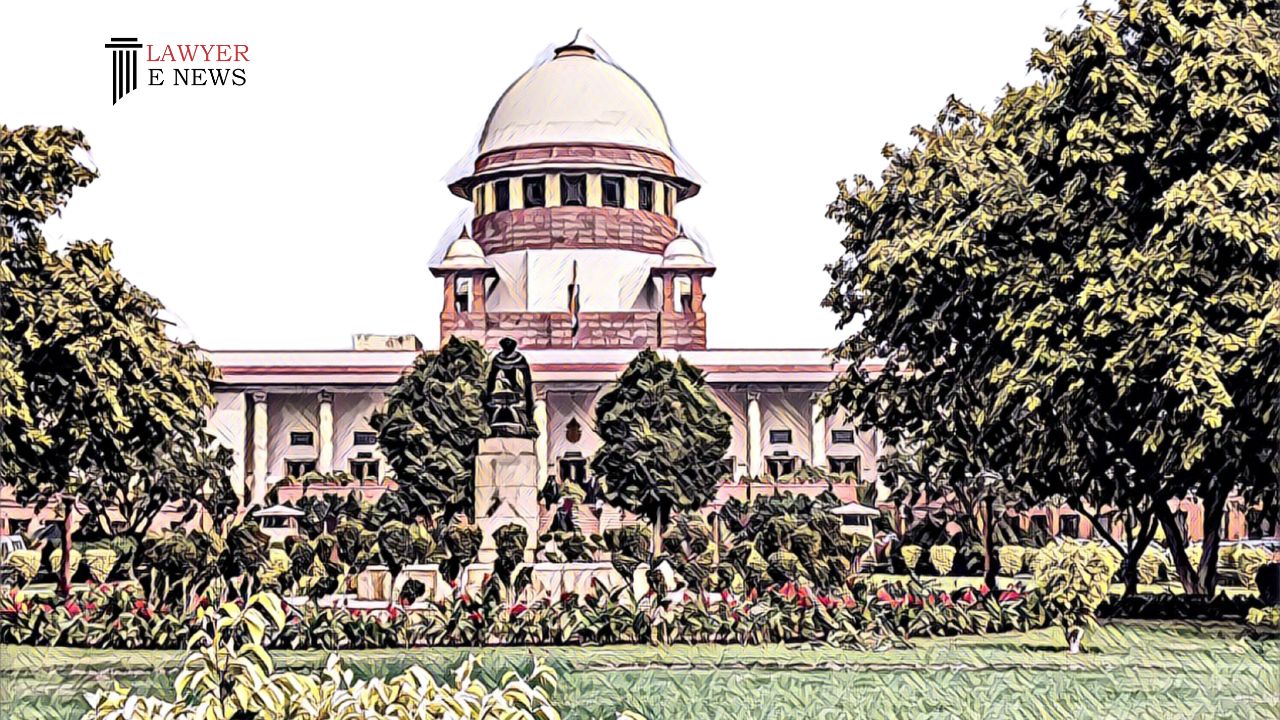-
by sayum
14 February 2026 2:22 PM



Landmark Judgment Upholds State’s Ownership Based on Continuous Possession Since 1958
In a significant judgment, the Supreme Court has upheld the State of Punjab’s claim of adverse possession, reversing a previous High Court decision. The apex court emphasized the importance of continuous possession and the burden of proof under Section 110 of the Indian Evidence Act, affirming that the land in question, donated in 1958 for a veterinary hospital, legally belonged to the state.
The dispute centered on a parcel of land measuring 2176.6 sq. yards in Samana, Tehsil-Samana, District-Patiala. The land, originally belonging to Inder Singh, was allegedly donated to the State of Punjab in 1958 for constructing a veterinary hospital. The hospital has been operational on the land since 1959. Inder Singh’s son, Bhagwantpal Singh, filed a suit for possession in 2001, claiming the state’s occupation was unauthorized. The Trial Court initially ruled in favor of the plaintiff, but this decision was overturned by the First Appellate Court, which recognized the state’s adverse possession. The High Court then restored the Trial Court’s decision, prompting the state’s appeal to the Supreme Court.
The Supreme Court criticized the plaintiff’s vague pleadings, noting the lack of specific details regarding the hospital’s construction and the plaintiff’s awareness of it. The court emphasized that such omissions could not be used to circumvent the limitation law. “The plaint should have been rejected for lacking necessary and material particulars,” observed the bench.
The court highlighted that the suit was barred by limitation under Article 65 of the Limitation Act, 1963, which provides a 12-year limitation period for suits seeking possession of immovable property based on title. The court stated, “In the present case, possession by the state since 1958, acknowledged even by the plaintiff as being known from 1981, clearly bars the suit filed in 2001.”
The court reiterated that the burden of proof for ownership lies on the respondent challenging the possession. “Possession since 1958 indicated ownership, supported by documentary evidence,” the bench asserted. The court noted that the state’s continuous and undisputed possession, coupled with documentary proof, effectively established ownership.
The Supreme Court delved into the principles of adverse possession and the presumption of ownership. “Title always follows possession unless contrary is established,” the court remarked, referencing established legal precedents. The court also addressed the importance of continuous and uninterrupted possession in establishing adverse possession.
Justice Vikram Nath remarked, “The hospital’s existence on the suit land since 1958 unequivocally establishes adverse possession. The burden of proving contrary ownership rested on the respondent, which they failed to discharge.”
The Supreme Court’s decision underscores the judiciary’s stance on adverse possession and the burden of proof in ownership disputes. By reversing the High Court’s judgment and upholding the First Appellate Court’s dismissal of the suit, the apex court reinforced the legal principles surrounding continuous possession and the limitation period. This landmark ruling is expected to have far-reaching implications on future land dispute cases, particularly those involving long-standing possession and ownership claims.
Date of Decision: July 10, 2024
The State of Punjab & Ors. V. Bhagwantpal Singh Alias Bhagwant Singh (Deceased) Through LRS
